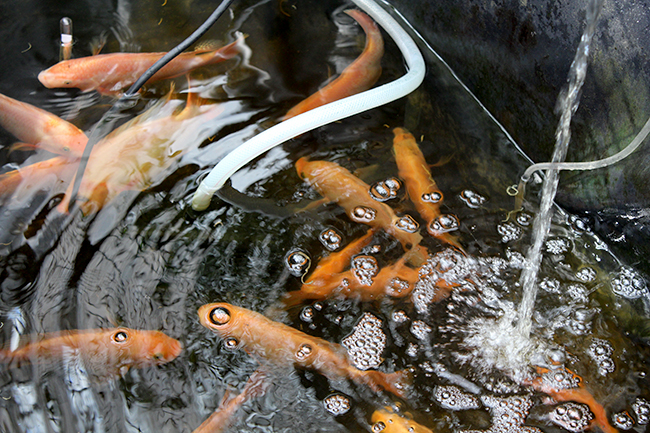Niagara Research has been awarded $287,795 by the federal government to support the purchase of applied research equipment and installations for three of its areas of specialization.
The funding, announced April 17, comes from the Natural Sciences and Engineering Research Council of Canada (NSERC) Applied Research Tools and Instruments Grants (ARTI) program. The acquisition of the equipment is meant to foster and enhance the ability of colleges to undertake applied research, innovation and training in collaboration with local companies.
The Niagara College grants include $130,096 for equipment and software to translate 3D scanned data into computer-aided design software, for the advanced manufacturing team; $29,949 for a web portal server for Niagara Research’s precision agriculture team; and $127,750 for an aquaponics system and growth chambers for the horticulture team.
To learn more about partnership opportunities with Niagara Research, contact us at[email protected], or 905-735-2211, ext. 7172.
GRANT DETAILS:
Advanced Manufacturing
Based on two major surveys of the Region’s more than 800 manufacturers both IIC@N and its collaborators have identified the need and necessity to expand the range of co-ordinate measurement machines (CMMs) and their supporting software. With the addition of a new portable CMM and software to transform three-dimensional (3D) scanned data into computer-aided design (CAD) databases, IIC@N will be able to further support its industry partners by performing: CAD-based large-part inspections, machine calibrations and alignments, dimensional analysis, tool building and setup, and robot calibrations. Increasing IIC@N’s capacity in 3D scanning and 3D software further enhances its position as a favoured partner for industry and will help it provide products and sustainable solutions to help strengthen and support our regional economy.
Learn more about the Advanced Manufacturing area of specialization.
Horticulture
Niagara College currently has a greenhouse that occupies 16,000 square feet. There is excellent research done in this facility, however, seasonal environmental conditions such as light levels, limit the replication of experiments as environmental conditions change with the seasons. A controlled environment growth chamber ensures that all growth parameters are controlled with exacting precision, allowing replication for scientific purposes. An emerging partially-closed growing system involves raising fish (aquaculture) in a contained indoor system, while using their organic waste to feed a hydroponic plant growth system, which combined, are referred to as aquaponics. This has the additional benefit of raising local fish, which reduces the footprint associated with travel, the environmental toxins that affect and are taken up by the fish, and the benefit of growing hydroponic vegetables. Overall, improving our ability to research with on-demand parameters on food plants and floriculture, as well as working with hydroponic vegetables and aquaponics create a perfect synergy to research four-season sustainable food with our industry partners, while demonstrating modern technologies to students.
Learn more about the Agriculture and Environment area of specialization.
Precision Agriculture
Niagara Research is the hub for Dr. Mike Duncan, the NSERC Industrial Research Chair for Colleges (IRCC) in Precision Agriculture and Environmental Technologies. The best opportunity to maximize the production from the currently farmed land is by increasing the yield. Precision agriculture is focused on increasing the yield, while decreasing the fertilizer inputs, which reduces costs, increases revenue, and minimizes environmental impact. Dr. Duncan and his team have developed a variety of web applications that provide real-time data, mapping, map analysis, and/or value added farmer data. Currently, the team’s Precision Agriculture work is at the stage where it can be applied with growers and grower consultants to increase their productivity and competitiveness.
To properly apply and test precision agriculture theories, with 15-30 growers as is required, a state-of-the-art server and disk system is required, particularly due to growers’ needs for quick data turnaround prior to applying inputs to their fields. At the end of the project, the algorithms and the system will be developed into an automated entity that has the capacity to process data from thousands of farms (there are 28,000 grain farmers in Ontario) in a timely manner. This funding provides a world-class computer engine that will be used to develop this system.
Learn more about the Agriculture and Environment area of specialization.





